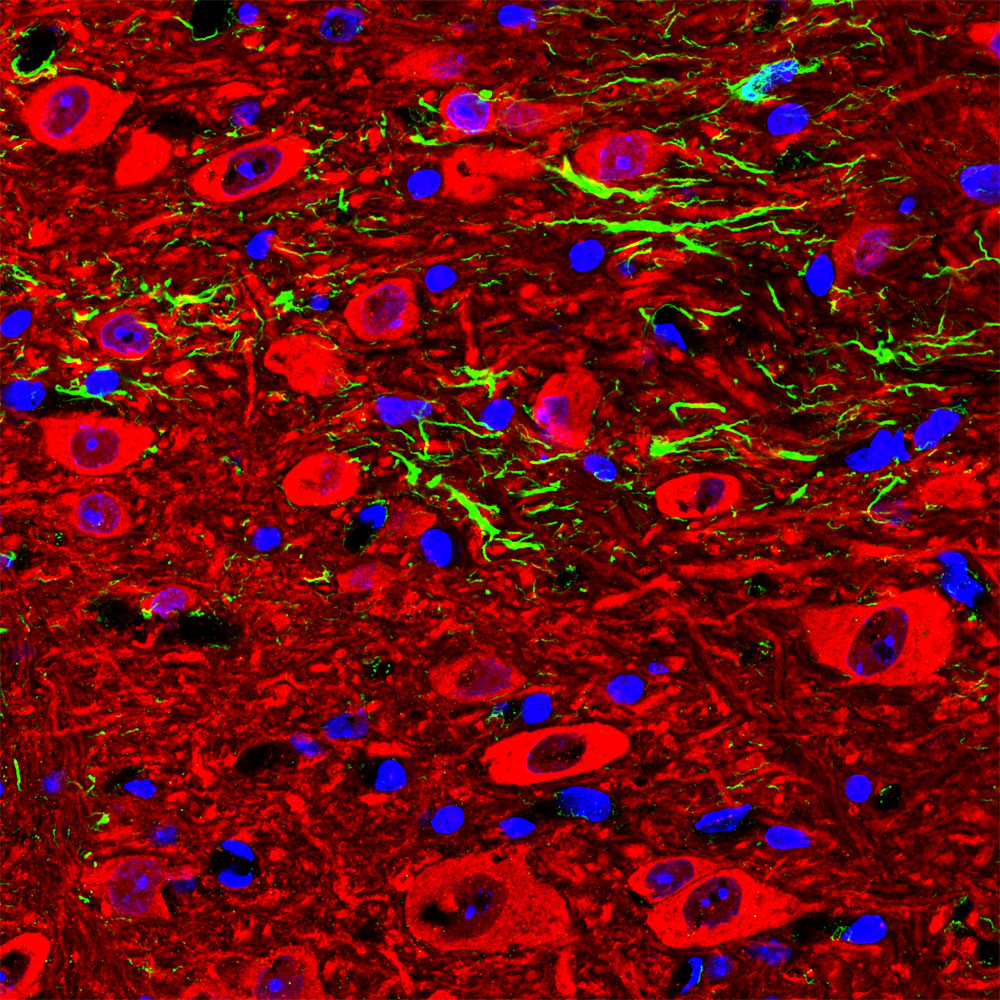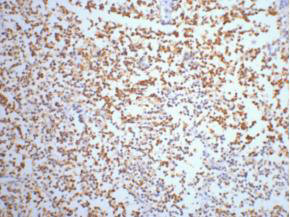anti-NSE / Neuron Specific Enolase antibody
ARG52377
ApplicationsImmunoFluorescence, Western Blot, ImmunoCytoChemistry
Product group Antibodies
ReactivityHuman
TargetENO2
Overview
- SupplierArigo Biolaboratories
- Product Nameanti-NSE / Neuron Specific Enolase antibody
- Delivery Days Customer23
- Application Supplier NoteSpecific for the ~47kDa NSE protein. * The dilutions indicate recommended starting dilutions and the optimal dilutions or concentrations should be determined by the scientist.
- ApplicationsImmunoFluorescence, Western Blot, ImmunoCytoChemistry
- CertificationResearch Use Only
- ClonalityPolyclonal
- ConjugateUnconjugated
- Gene ID2026
- Target nameENO2
- Target descriptionenolase 2
- Target synonymsHEL-S-279, NSE, gamma-enolase, 2-phospho-D-glycerate hydro-lyase, 2-phospho-D-glycerate hydrolyase, enolase 2 (gamma, neuronal), epididymis secretory protein Li 279, neural enolase, neuron specific gamma enolase, neuron-specific enolase, neuronal enriched enolase, neurone-specific enolase
- HostRabbit
- IsotypeIgG
- Protein IDP09104
- Protein NameGamma-enolase
- Scientific DescriptionNeuron specific enolase (NSE) is an enzyme which catalyzes the conversion of 2-phosphoglycerate to phosphoenolpyruvate in the glycolytic pathway, and also the reverse reaction in gluconeogenesis. It is one of three mammalian enolases, which are also known as ENO1, ENO2, and ENO3 or alternately as enolase alpha, beta and gamma. The three enolases have different cell type specific expression patterns, so that antibodies to them are useful cell type specific markers.(MacAlesse et al., 1988). NSE corresponds to ENO2 or enolase gamma and is heavily expressed in neuronal cells. ENO1 is also known as enolase alpha and as non-neuronal enolase. The third enolase, ENO3 or enolase beta, is expressed in muscle cells. Since neurons require a great deal of energy, they are very rich in glycolytic enzymes such a GAPDH and NSE. Antibodies to this protein are therefore useful to identify neuronal cell bodies, developing neuronal lineage and neuroendocrine cells. Release of NSE from damaged neurons into CSF and blood has also been used as a biomarker of neuronal injury .
- ReactivityHuman
- Storage Instruction-20°C
- UNSPSC41116161






